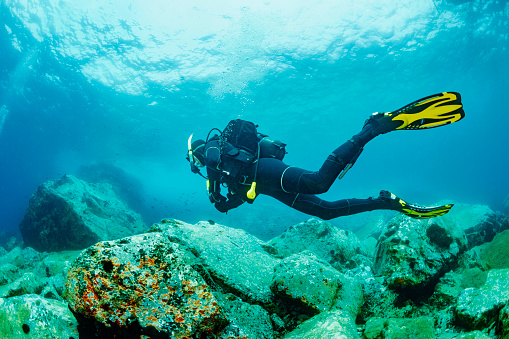The Benefits of Scuba Diving Classes

Scuba diving classes give you the knowledge and skills to dive safely. It’s also a fun way to learn about marine life and the world beneath the ocean surface. Scuba diving courses are also a great opportunity to meet like-minded people.
The physical fitness benefits of scuba diving include an aerobic and anaerobic workout that helps build muscle strength, stamina and flexibility. It also promotes a calm attitude, decreases stress and can help you achieve a healthy weight.
Taking scuba diving NJ classes also improves your social health by making you part of a community of other people who share the same interest in diving and travel. This can lead to a sense of belonging, a social and emotional benefit that can last long after the class is over.
Your instructor is there to guide and support you throughout your entire scuba diving experience. They can answer any questions you may have, provide feedback on your progress and give reassurance when necessary.
You can find a variety of scuba diving classes for beginners to more advanced divers. Depending on the type of scuba certification you want, your training will take anywhere from one day to several weeks. Check out this website at http://edition.cnn.com/travel/article/asia-best-dive-sites/index.html for more info about scuba.
There are many scuba diving agencies including PADI, SSI, BSAC and RAID that offer diving certifications worldwide. Each of these agencies has different requirements to meet, but all are recognized by a variety of countries.
When choosing scuba diving NJ course, make sure you choose a professional instructor. It’s important to feel comfortable with the person leading your lessons and they should be passionate about scuba diving. It’s best to ask lots of questions and find out their background before you sign up for a class.
If you are nervous, let your instructor know so they can offer advice and reassurance. They may be able to suggest ways that you can relax, such as a deep breathing exercise. This will help you to get into the rhythm of the underwater environment and make the whole experience much more pleasant.
Your instructors will give a briefing or overview of the dive conditions, what marine life you will see and the route you’ll take. You should listen carefully to this so you don’t miss out on anything valuable that could have an impact on your experience.
The pressure inside the scuba tank can be very uncomfortable. It’s best to keep your head up, move a little and breathe slowly. When the air gets tight in your ears, pinch your nose closed and blow slowly.
It is not recommended to breathe quickly or forcefully, it will only increase your risk of drowning. If you do need to breathe quickly, it’s better to open your mouth rather than your throat and use the back of your tongue to release the pressure.
It’s also best to stay still. Moving around too much makes it harder to maintain your buoyancy and reduces the amount of oxygen in your lungs. You should also avoid trying to climb up to the surface too soon, as it can be dangerous.
